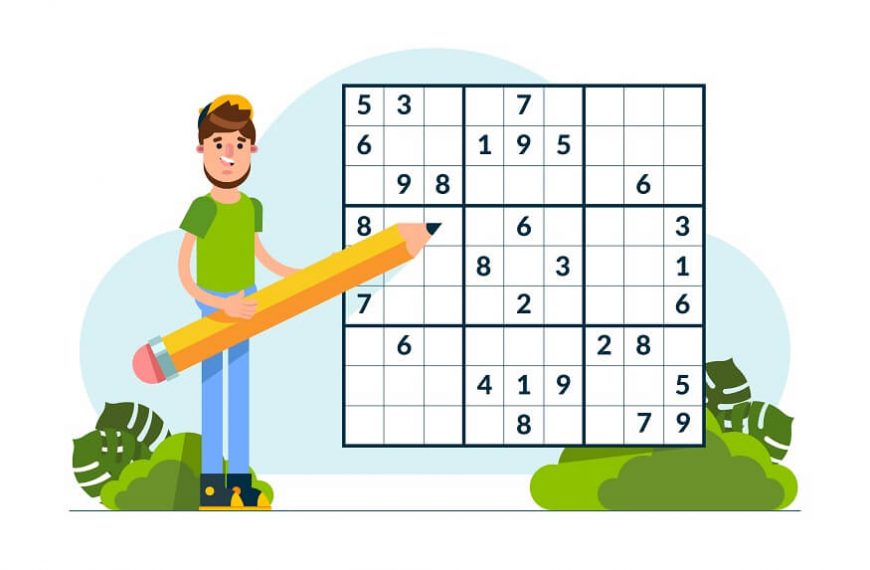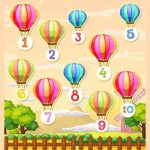Sudoku Challenges for Preschool & Kindergarten Children
The popular number-based puzzle game Sudoku is known for its intricate grids and demanding problem-solving abilities. Did you know that Sudoku may also be modified to appeal to the impressionable brains of preschoolers and kindergarteners? It may be a really great method to improve young learners’ cognitive abilities, critical thinking abilities, and logical reasoning to introduce Sudoku tasks that are particularly made for young learners. The advantages of Sudoku games for kids and how to play Sudoku puzzles for kids will be covered in this blog. So let us dig in and explore the fantastic Sudoku universe designed specifically for our youngest puzzle fans.
The Advantages of Sudoku for Kids:
Kids’ sudoku games have several advantages that support their general growth. Here are several noteworthy benefits of teaching children in preschool and kindergarten Sudoku puzzles:
- Cognitive Development: Sudoku puzzles encourage analytical thinking, problem-solving, and judgement. They urge kids to reason and analyse while finding out where the numbers should go in the grid of the puzzle.
- Concentration and Focus: Children gain focus, attention to detail, and concentration abilities through doing Sudoku problems. The persistent mental effort required by the game improves players’ capacity for sustained attention.
- Numerical and Mathematical Proficiency: Children can improve their number sense, number recognition, and foundational arithmetic abilities, such as addition and subtraction, by solving sudoku puzzles. Children build a strong foundation for future maths learning by discovering patterns and relationships between numbers.
- Patience and Perseverance: Sudoku problems demand persistence and patience to complete. Children learn to persevere, maintain motivation, and develop resilience as they experience obstacles and setbacks— a vital life skill that will help them in a variety of contexts.
How to Play Sudoku for Kids:
Playing Sudoku puzzles with kids is a fun and interesting activity that fosters the growth of their analytical and problem-solving abilities. Here is a step-by-step tutorial for teaching Sudoku to preschoolers and kindergarteners:
- Start with a Simple Grid: Choose a Sudoku grid made especially for beginners to get started. A smaller grid with fewer vacant cells to fill, either 4×4 or 6×6, should be used. This strategy introduces the game gradually, reducing overload and promoting a favourable experience.
- Focus on Numbers 1 to 4 (or 1 to 6): Limit the puzzle’s digits to 1 through 4 (or 1 through 6 for a wider grid) as it is intended for preschoolers and kindergarteners. This range ensures that kids can easily understand and use the numbers presented.
- Provide Clear Instructions: To complete each row, column, and smaller square in the grid with the numbers 1 through 4 (or 1 through 6), as appropriate, is the goal of Sudoku. You should explain to the kids. For each row, column, and square, each number should only appear once.
- Demonstrate and Practice: Give step-by-step instructions for how to solve a few straightforward Sudoku problems using specific examples and pictures. Encourage kids to engage fully and give them lots of opportunities to practise new ideas and techniques.
- Gradually Increase Complexity: Increase the complexity of Sudoku problems as kids master the fundamental ideas by enlarging the grid and including more vacant cells. This evolution maintains a sense of accomplishment while testing their abilities.
- Celebrate Successes and Encourage Progress: Recognise and celebrate kids’ accomplishments as they complete Sudoku problems. As kids advance, please encourage them to take on more difficult grids to help them feel more confident and successful.
Puzzles for Kindergarten: Making Learning Fun:
Kindergarten Sudoku puzzles are a great supplement to any educational programme since they provide a fun way to master essential skills. Sudoku puzzles may be included in the kindergarten setting by teachers to:
- Foster Critical Thinking: Sudoku helps young people think logically, spot patterns, and make defensible choices. These abilities are crucial for problem-solving across a range of academic areas and in everyday life.
- Enhance Mathematical Abilities: Children may develop a solid foundation in arithmetic ideas by solving sudoku puzzles, encouraging number recognition, ordering, and logical thinking. These abilities lay the foundation for future mathematical success.
- Develop Perseverance and Resilience: Trial and error are involved in solving Sudoku puzzles, so kids must persevere and take responsibility for their mistakes. Through this process, they learn to accept obstacles and see failures as chances for progress, developing a growth mindset.
- Promote Collaboration and Communication: Sudoku may be made into a cooperative exercise that motivates kids to cooperate, discuss tactics, and share their problem-solving methods. This encourages collaboration and good communication.
For preschoolers and kindergarteners, sudoku puzzles are a fun and efficient approach to developing their cognitive talents, critical thinking abilities, and logical reasoning. By including Sudoku puzzles in their education, we provide developing brains with the skills they need to overcome obstacles, think critically, and approach problems in novel ways. Let’s embrace the fun of Sudoku as educators, parents, and carers and provide our kids exciting opportunities to explore, learn, and develop through this fun puzzle game for kids. Why then wait? Join me on this fascinating Sudoku journey as I help our young students realise their full potential.















